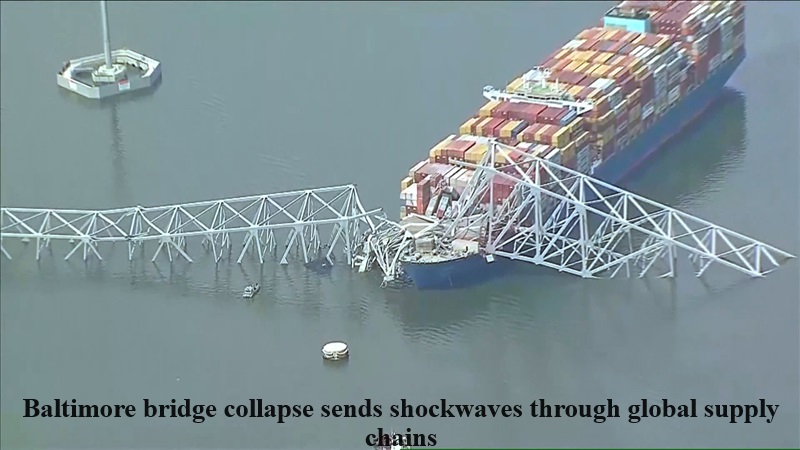
The recent collapse of a significant bridge in Baltimore, resulting from a collision with a cargo ship, has reverberated throughout global supply chains, compelling businesses to swiftly devise strategies to prevent economic repercussions.
Following the accident, vessel traffic at the Port of Baltimore has been halted, prompting industry experts to mobilize efforts to minimize potential disruptions, albeit acknowledging manageable challenges in the immediate aftermath.
The economic significance of the Port of Baltimore was underscored by US Transportation Secretary Pete Buttigieg, who emphasized its critical role as the nation’s largest vehicle-handling port. Maryland Governor Wes Moore also cautioned about widespread indirect impacts affecting over 140,000 individuals, in addition to the direct impact on thousands of port workers.
In response to the suspension of operations at the Port of Baltimore, analysts anticipate a partial diversion of cargo to alternative ports, notably the Port of New York and New Jersey. Among the sectors most vulnerable to disruptions is the automotive industry, given the Port of Baltimore’s crucial role in automobile imports. Delays in cargo movement can potentially lead to inventory shortages, particularly affecting industries reliant on just-in-time deliveries.
In light of these challenges, major automotive manufacturers such as Mazda and Stellantis are actively evaluating the situation and crafting contingency plans to safeguard their supply chains. They are working to mitigate the impact of the disruption on their operations and minimize potential losses.

Post Your Comments